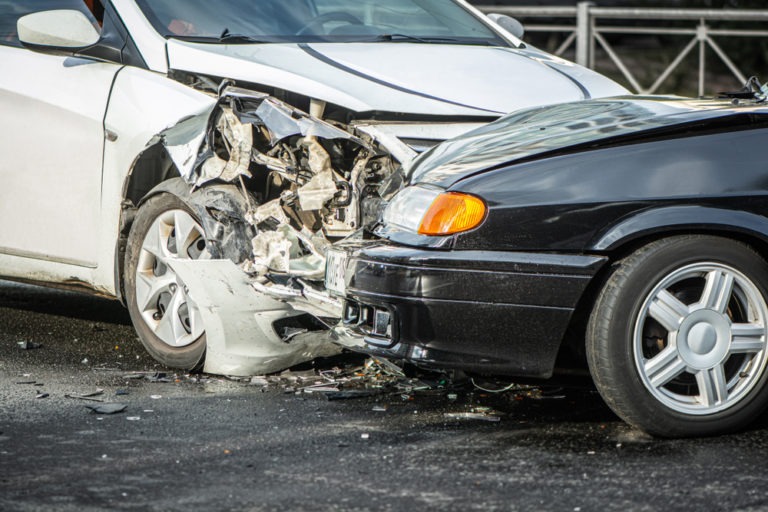
The at-fault party in a head-on collision car accident is generally the person who was driving the wrong way, as most of these accidents occur for that reason. Two vehicles’ paths should not cross while one or both cars are in motion. So, when this happens, it is when something goes wrong.
If you were the victim of a head-on car collision, read on to learn more.
How to Determine Fault After A Head-On Collision
Not all accidents are the same, so it is important to look at the specifics of your case. You can begin by requesting a copy of the accident report the police drew up at the scene (or an involved party filed days later). This document will state who the police think was at fault for the accident.
You can then collect evidence that supports your claim for compensation. You might agree with the accident report or not; either way, you can submit it with your demand letter to your insurance company.
You can also send the following to the insurance company:
- Photos of the damage to your vehicle
- Photos of your injuries
- Video footage of the accident, taken from security and traffic camera systems
- The other party’s driving record
- The cell phone record of the other party
- Your written testimony of the accident
- Eyewitness accounts of how the accident occurred
- Any recordings of the other party you took after the crash
- Receipts from your medical care and car repair
How Your Head-on Collision Accident Occurred Can Affect Your Settlement Award
Your accident could have happened for any of the following reasons:
Drunk or Intoxicated Driving
The other driver could have decided to get behind the wheel after passing the legal limit, which could have caused them to cross into the opposing lane and collide with your vehicle.
Distracted Driving
The at-fault driver might have been driving while distracted, such as by texting or talking to passengers. This behavior could have caused them to miss a “do not enter” sign and drive up the wrong ramp in a parking garage you were leaving, causing a collision.
Reckless Driving
The other driver could have illegally tried to pass on the left-hand side by driving in the opposing traffic lane, placing their vehicle in your car’s path.
How You Could Secure Compensation after a Head-on Collision
Winning a financial award will have to involve a specific process and tasks. These include:
Assessing Your Accident-Related Losses
Your damages could make you eligible to collect a settlement or award. These losses might be:
- Past and future medical bills
- Adjustments to your home, like the installment of a wheelchair ramp
- Past and future pain and suffering
- Past and future mental anguish
- Past lost wages
- Future loss of earning capacity
- Loss of enjoyment of life
- Disfigurement or loss of limb
All these losses will create a total settlement goal figure you can shoot for when negotiating with the insurer.
Negotiating with the Insurance Company
Some companies do not want to pay accident victims fairly. They might try to undercut your payment or just deny you outright. Your lawyer can step in and handle these communications for you, though.
Filing a Lawsuit and Arguing at Trial for Damages
You can take your case to court for a judgment. Before that day arrives, you can keep negotiating with the other party for a fair settlement, though.
How a Lawyer at Our Firm Could Help You Build a Strong Claim
As mentioned above, your lawyer can negotiate with the insurer—and handle communications with the other party. Other things they can do involve performing the valuation of your accident-related losses, writing up the demand letter and sending it to the insurance company, and:
- Informing you of your options and what the process of securing an award will look like for you
- Standing by you in court and making your argument to the judge or jury
- Protecting your rights
- Collecting evidence to support your case while you recover from your injuries
You do not need to take on this journey alone. Turn to a legal professional who has seen cases like this before.
You Could Be Partially at Fault for Your Head-on Collision Car Accident
The insurance company might deem you partially responsible. In Nevada, you could still collect compensation under NRS §41.141 in this situation. Your portion of fault could lessen how much of a financial award you could recover, but you are not completely out of luck.
Speaking to your legal team about how the accident occurred and what you were doing at the time you were hit might help you see where you stand.
Your Time to File a Lawsuit in Nevada for a Head-on Collision Is Limited
NRS §11.190(4)(e) imposes a timeline on how long you have to take legal action after an accident like a head-on collision. There are opportunities for an extension of this period, but they only apply in specific circumstances, such as if a child was harmed in the accident or the other party left the state after the accident.
Most injured Nevadans generally have two years to file a lawsuit in pursuit of fair compensation from the at-fault party in a head-on car accident collision.
Call the Attorneys at High Stakes Injury Law So We Can Start Working on Your Case
Our team takes on cases of all types. Our mission is to help injured people in Nevada. Let us work for you. Call High Stakes Injury Law for a free consultation.

